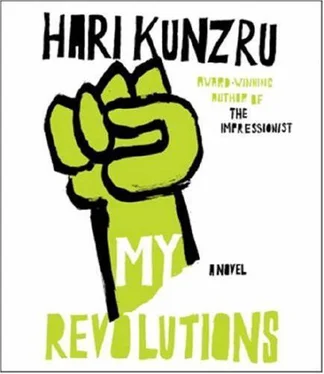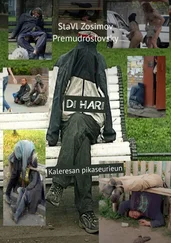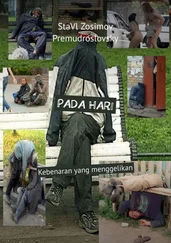to find somewhere else to sleep. We shuttered the doors and held a closed meeting.
Q: Why have you done this?
We felt it was the only adequate response to the presence of the army on British streets.
Q: What political purpose does this serve?
It reminds people the system isn’t invulnerable. It has a small practical effect on the machinery of the military.
Q: Shouldn’t it have been a group decision?
It was spontaneous. Besides, all action seems equally meaningless in our alienated state. Why focus on this in particular? What’s special about it?
Q: How do you justify putting the collective at risk?
It was a provocation. We want to force you, our comrades, to think.
Q: What are we to think about? Your quietism.
Your continuing collaboration with Imperialism.
Q: Can you promise you won’t take such unilateral action again?
No. Why should we promise? Why would you want to extract such a promise? Is that you setting a limit, or the voice of some power that has a hold over you?
Q: Your gesture is infantile. The revolution will be led by the working class. A terrorist is just a liberal with a bomb, arrogantly presuming to lead the way.
Rubbish. You’re covering up your cowardice with quotations. Change is imminent. It’s happening around the world. The slightest pressure will tip the balance in our favor.
One spark, a thousand fires burning.
We were so impatient. We wanted the time to be now. Of the core group, only Matthias and Helen remained seriously troubled by what we’d done. We were supposed to be protesting against war. Surely a peaceful gesture would have been better? I accused them of fetishizing nonviolence, telling them they’d just internalized the state’s distinction between legitimate protest and
criminality. Leo and I were censured for our individualism, but the logic of confrontation did its work. By the end of the meeting, everyone was in agreement. We would go further.
That night I slid into bed beside Anna and asked her why she was ignoring me. I told her she was beautiful, and she asked how I’d feel if someone threw acid on her face. Then I pushed too hard and said I loved her, which made her pull my hair and hiss at me, tears of rage and frustration in her eyes. How could I be such a pig-thick bourgeois ? Why didn’t I get it? Unless we were prepared to do something, we were just another part of it, more dead weight on the shoulders of the world’s poor. Our precious individuality was oppressive precisely because we found ourselves so special. To give ourselves pleasure, we’d countenance all sorts of horror, as long as it happened far away. So why didn’t I get it? Why didn’t I get that my stupid narcissistic idea of love made her sick?
The night after that, we drove to Chelmsford, then Colchester, setting fire to a recruitment office and a Territorial Army storage depot. At each site we scattered leaflets.
FOR QUEEN AND COUNTRY
Great prospects! See the world!
What will YOU be doing in Northern Ireland? They tell you it’s for your country. They’re lying. You’ll be breaking down working-class doors, trampling on people like yourself and your family. They want you to kill and die for their profits. We’re fighting back against their power.
Rise up! Remember August 14!
We made it back to London as dawn broke, still wired on the amphetamines we’d taken to get through the night. The Rover
stank of petrol. Its upholstery was smeared and grubby. We drove it on to some wasteground near Hackney Wick and burned it out. Anna insisted we should steal another car immediately, but we couldn’t get into any of the vehicles parked on nearby streets and ended up trudging several miles home through freezing fog.
For several days we looked through the newspapers, expecting to see our actions reported. There was nothing. We read that BBCi had just started broadcasting in color; an actor from Coronation Street had gotten married. No real news, just distraction. A couple of days later we stole another car and drove to Chelmsford to check our work. There it was: a blackened building like a missing tooth in a jaw of shuttered shopfronts.
New Year came and went. A new decade. Thirteen was so cold that milk froze in bottles on the windowsill and a film of ice coated the inside of the bathroom window. A dozen of us slept close together on the mattresses, a rat-king in a midden of sleeping bags. None of us was working. We had problems with dole claims, fines, probation, unpaid debts. I wanted a life free of money, but it seemed to be plucking at me, its tendrils curling round my ankles as I shivered in my sleep. I developed a rash, which left clusters of tiny lesions round my mouth and between my thighs. It was several weeks before we realized that we were all suffering from it, scratching at our armpits, our pubic hair, infecting and reinfecting one another. We burned the bedding and got more.
We went out looking for work, pooling whatever money we could get. I labored on building sites. Leo and I stole tools and used them to open up empty houses, leaving a trail of flapping doors around the East End. We joked about setting up a squatters’ estate agency. In the face of hostility from the other women, Anna got a job in Soho, first as a cocktail waitress, then as a stripper. I think the work was important to her, part of her project. Once, or at least once that I know about, she accepted money for sex from a man she met at the club. She told me she did it to see what it was like to become a commodity. Self-denial would be the wrong term for what she was doing. It wasn’t some kind of religious
bargain: Anna certainly didn’t believe in a reward in the hereafter. She was mounting yet another assault on her own sense of privilege and entitlement, on what she considered the “excessive value” she’d been brought up to place on her life.
Sometimes I went to pick her up from the club, hanging around on the pavement outside because the doorman wouldn’t let me in. She’d come and find me and we’d go to drink frothy coffee at an Italian place on Old Compton Street. I’d surreptitiously examine her for signs of change, beyond the unfamiliar traces of makeup round her eyes and mouth. We’d talk a little, laugh about inconsequential things. It felt good, a moment of relief from the struggle. I knew she enjoyed it too, so I was shocked when she denounced our meetings in Criticism-Self-Criticism, accusing me of deviation, of clinging to the luxury of bourgeois leisure.
Someone brought a plastic bag of mushrooms back from Wales. We tripped and argued and shivered under the covers and scraped the huge pan of vegetable stew, endless vegetable stew made with whatever we could buy or scavenge, tasteless however much curry powder we added to the mix. We wrote position papers and smashed monogamy and once in a while we burned something down. Then Sean was released from prison and our hibernation came to an end.
* * *
As I watched Miles eat fish pie, it occurred to me that we were sitting more or less across the road from the coffee bar where I used to meet Anna. When I went to use the bathroom I looked out of the window. The café had gone, turned into a Thai restaurant. The club was gradually filling up, the sofas now tenanted by well-dressed after-work drinkers. In the bathroom I splashed water on my face and tried to work out where Miles was leading. I expected him to make a proposition, a demand of some kind, but when I got back to the table he’d called for the bill.
“I think that’s enough for now,” he told me. “I have things to do. I’ll drop you at your hotel.”
“So that’s it? You’ve finally got it into your head that Pat Ellis wasn’t involved?”
Читать дальше












